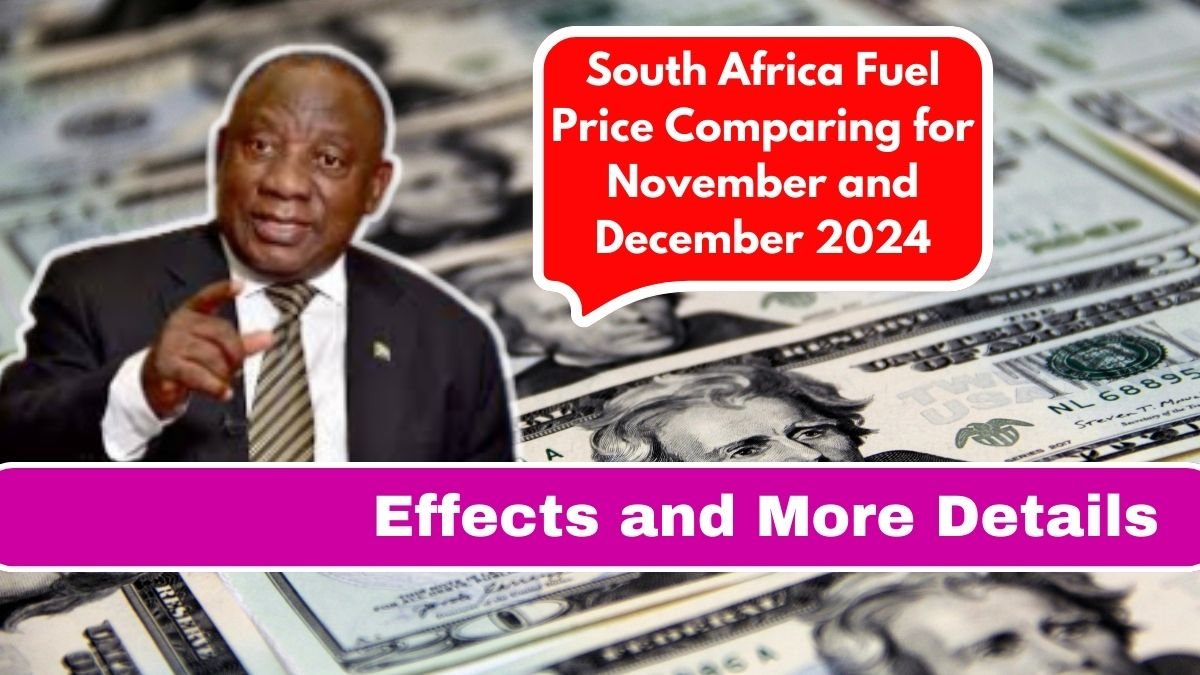Fuel prices have been a hot topic lately, haven’t they? If you’re like most South Africans, you’ve probably felt the pinch at the pump and wondered, “Why is this happening, and how does it affect me?” Let’s dive into the details about fuel prices in November and December 2024, how they compare, and what it all means for your wallet and daily life.
What Happened to Fuel Prices?
In November 2024, South Africa saw a steady increase in fuel prices due to global oil market trends and a weaker rand. The average price per liter for petrol and diesel rose significantly compared to earlier months. December brought some relief, but not enough to undo the strain November caused.
This change is largely tied to international crude oil prices, which dictate a big chunk of our local fuel costs. Add in currency fluctuations, and you’ve got the recipe for the rollercoaster ride we’ve all been experiencing.
November 2024: A Tough Month
November’s fuel prices surged due to higher crude oil costs and the rand weakening against the dollar. Petrol prices climbed by several cents per liter, while diesel followed suit.
Here’s how things looked:
| Fuel Type | Price per Liter (November 2024) |
|---|---|
| Petrol (95) | R24.20 |
| Petrol (93) | R23.80 |
| Diesel (50ppm) | R23.00 |
| Diesel (500ppm) | R22.80 |
December 2024: Slight Improvement
December brought minor relief as crude oil prices stabilized. The rand showed some resilience, helping to ease the upward trend. Still, fuel prices remained high compared to earlier in the year.
| Fuel Type | Price per Liter (December 2024) |
|---|---|
| Petrol (95) | R23.80 |
| Petrol (93) | R23.50 |
| Diesel (50ppm) | R22.70 |
| Diesel (500ppm) | R22.50 |
The small reductions might seem like a drop in the ocean, but every cent counts when you’re filling up, right?
How Do These Prices Affect You?
The ripple effects of fuel price changes touch almost every aspect of life. Transport costs increase, which means everything from groceries to public transport fares might get more expensive. If you’re a business owner, your logistics and operational costs might skyrocket.
But it’s not all doom and gloom! Being aware of these changes can help you plan smarter. Think of carpooling, using public transport, or consolidating trips to save on fuel.
Why Are Fuel Prices So Volatile?
Fuel prices in South Africa depend on a mix of factors:
- International crude oil prices: When these rise, our prices go up.
- The rand-dollar exchange rate: A weaker rand means higher prices for imported oil.
- Taxes and levies: A portion of what you pay at the pump goes to government taxes.
Imagine fuel prices as a kite in the wind, soaring or dipping based on global and local economic currents.
Looking Ahead: What Can We Expect?
While predicting future fuel prices is tricky, experts suggest keeping an eye on global oil markets and South Africa’s economic policies. If the rand strengthens and crude oil prices stabilize, we could see more relief at the pump.
For now, focus on fuel-saving habits. Even small changes, like keeping your tires properly inflated or avoiding heavy traffic, can make a difference.
Conclusion
Fuel prices in South Africa during November and December 2024 have been a rollercoaster ride, impacting daily life and budgets. While December brought some relief, fuel costs remain a challenge for many. Understanding these fluctuations helps us navigate the impacts and adapt. So, let’s stay informed, plan wisely, and find ways to stretch our rands.
FAQs
Why did fuel prices increase in November 2024?
They rose due to higher global crude oil prices and a weaker rand.
Did fuel prices drop significantly in December 2024?
Prices dropped slightly in December, but the reduction wasn’t enough to reverse November’s increases.
How do fuel prices affect everyday costs?
Higher fuel prices increase transport costs, which can make goods and services more expensive.
Can I save on fuel despite high prices?
Yes! Fuel-saving habits like carpooling, using public transport, and maintaining your vehicle can help.
What factors influence South African fuel prices?
International crude oil prices, the rand-dollar exchange rate, and government taxes play key roles.





